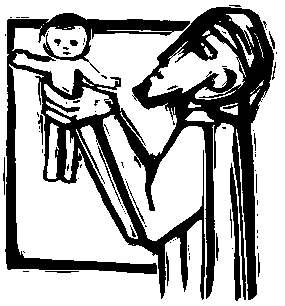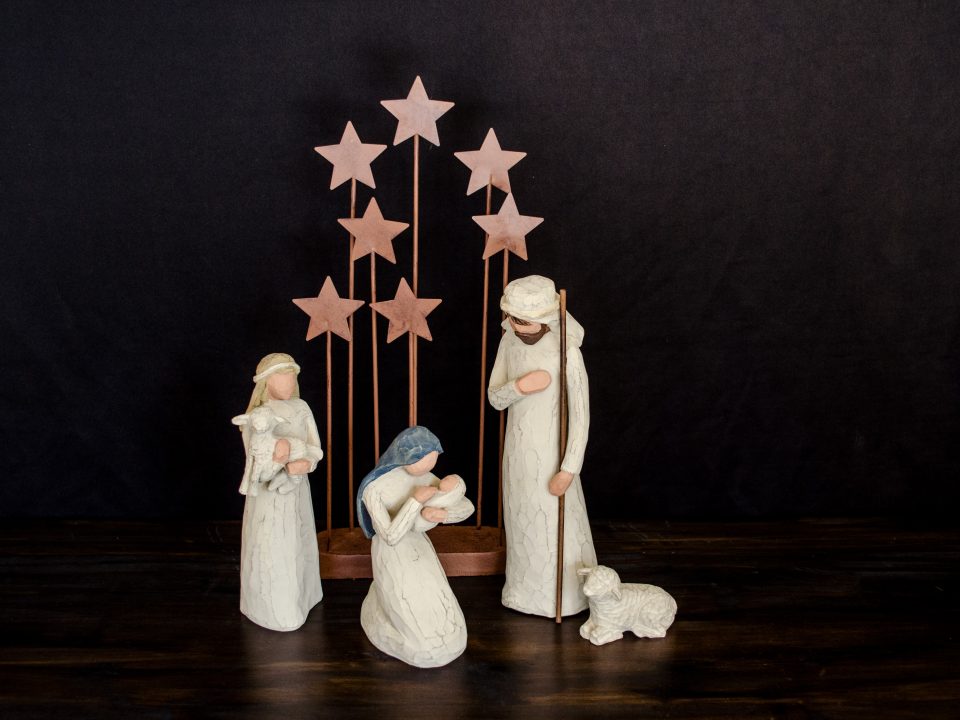Pentecost 12B – August 11, 2024
Howard Wallace
At first glance, the reading from Paul’s letter to the Ephesians might suggest a rather interesting profile of the early Christian congregation in that ancient city. It sounds as though the congregation is fraught by trouble speaking the truth, by problems containing anger, by theft, gossip and bitterness. Such a congregational profile would be enough to scare off the most desperate (or most courageous) of ministers seeking a placement. But maybe our first glance is not fair to the Ephesians, or what Paul says to them. Maybe Paul is not suggesting that they are a bunch of hooligans who need to reform their ways. Or even if they were a bit wayward, what has Paul’s letter to say to us two millennia later?
Two weeks ago in our combined service, the Rev’d John Flett from Pilgrim College, the Uniting Church’s college for training ministers and others, took us on a journey through Ephesians elucidating the message Paul had for that congregation. He worked his way through chapters 1-4 of Ephesians and, in summary, reasoned Paul was saying that ‘it was the eternal purpose of God to join together into one body both the people of God (in Paul’s terms, the Jews) and the not people of God (the Gentiles). God achieves this through Jesus Christ. In Christ, we are all heirs of God’s promise and we become children of God, not because of any merit of our own, but because God in Christ called us to be God’s children.’ As Paul says himself, ‘God’s own purpose is for the unity of all things in heaven and earth in Christ (1:10).’ God’s purpose is the unity of all peoples, all creatures and other parts of creation in Christ.
John did not take us further in Ephesians, his reading finished there. But, of course, Paul has not finished his letter. One question I had from that sermon was: well, what is the church if God’s purpose is to bring all creation into unity in Christ? The church is often thought of as the new chosen people of God, the elect, those who have chosen to follow God’s way, the inheritors of eternal life. But what is the point of the church if God plans to bring all things in heaven and earth into unity. The church can no longer be thought of in any way as a privileged group, which somehow stands above others. And this is where the rest of Paul’s letter comes in.
In the letter just before today’s reading, we hear Paul urging his readers to no longer live as Gentiles, or as we have said, as people who are ‘not people of God’ – people without understanding, alienated from God and abandoned to all sorts of greedy, selfish practices. That is not, Paul says, what they have learned in Christ. Rather, in his words, they are to ‘clothe themselves with a new self, created according to the likeness of God in true righteousness and holiness’ or as he says at the end of today’s reading, they are to be ‘imitators of God.’ Now I don’t think Paul sees himself addressing the congregation from hell who need to urgently mend their ways. Nor is Paul calling for a congregation to be ‘holier than thou’ seeing themselves as above what is worldly. Rather, I think Paul sees the church here as a group of people who live in the world in accordance with the ways of God. They are, if you like, a people who live out the purposes of God, foreshadowing the unity which God intends for all things in heaven and earth. They are a microcosm of what God is working toward – embracing the unity God purposes for all creation. And even as our own denominations name suggests, it is a ‘uniting’ fellowship. As one commentator puts it: ‘Christian communities are meant to be living demonstrations before the world of the revolutionary “new humanity” forged in Jesus’ death and resurrection.’ (Sally Brown, Princeton Seminary).
It follows then, that our reading today is not just a list of the failings of one congregation of the distant past as Paul urges them to pull up their socks. Paul probably did have some criticisms of the Ephesian Christians. But that is in the past and what benefit is it for us in just hearing of their peccadillos? Rather, we must look at the list of issues Paul gives us in a new way: as a list of some of the ways the church can be imitators of God. The list is long with five items:
speaking the truth to neighbours,
being angry without sin,
giving up stealing,
letting no evil talk come from our mouths,
and not nursing any bitterness.
At a personal level, I have no doubt that each of us would say that we do our best to live according to these principles, and others within scripture. And we would largely be correct in our assessment, although rigorous self-assessment might reveal slip-ups or even traits within our behaviour or character that need to be addressed. But personal Christian faith and discipleship is one thing. We live in a complex world, as did Paul and the Ephesians, only our world is complex in very different ways to that of the early Christians. So within our own context let us look at a couple of the things Paul lists.
First, telling truth to our neighbours. The truth for many people may seem a relatively simple thing but is that really the case? Even in the most objective and open discussions the truth of a situation or thing may be contested or remain elusive. Moreover, sometimes telling the truth to one’s neighbour can be a hurtful thing and the necessity of doing so needs to be evaluated. Even telling the truth to oneself or knowing one’s own truth can be a difficult thing and self-deceit much easier to cope with. They used to say truth was the first casualty of war. That is still evident today in the conflicts going on in Ukraine and Gaza. But the saying might apply equally to politics as has become so evident in the US of late or even within our own political system from time to time. And we haven’t even touched on issues of truth in advertising or business dealings, let alone the way truth has become an uncertain commodity in the world of the internet and social media. Telling truth to one’s neighbour now involves discerning and hearing the truth in our neighbour’s voice in so many ways.
We might also think about what could seem the simplest of Paul’s instructions: giving up stealing. Surely, nothing is controversial about that. But note what it is combined with – not just working honestly with your own hands (we might add with our own minds, time, resources etc.) but it stands associated with offering help to those in need. Theft and helping those in need stand as opposites. As one scholar says: ‘There is no middle position called goodness.’ But what is theft? Again, it is a complex and subtle thing. Certainly, taking some item or money that does not belong to you; that is obvious. And not paying employees what is rightfully owed to them, be it in terms of superannuation payments or reducing the wages of casual restaurant staff as was on the news a little while ago; that too is theft. But what about the slow response of nations including our own to climate change. What are we taking away from future generations by our slowness to act in the present, not to mention the theft of land and life as fires and floods worsen around the world or low-lying communities are threatened by rising seas. And, of course, there is the theft of land, language, culture and ultimately lives of Australia’s own indigenous peoples in a settlement that we partake of and enjoy today.
All this is not meant to simply depress us in a world where our contributions might seem small. It is to spell out some of the complexity within which Paul’s final word of encouragement to the Ephesians sits. He urges them, and us, to put away the things he has spoken about – falsehood, destructive anger, theft, speaking evil of others, and bitterness. They and we are to be imitators of God which sounds a big order indeed. But note how he further characterises imitating God, by ‘living in love, as Christ loved us and gave himself up for us’ (Eph 5:2). Living in any other way would be a disastrous imitation of God. ‘Living in love’ is the way the church is to be within the world as a foreshadowing of the unity of all things which God brings about in Christ. It gives each of us our sense of identity as individuals and gives our community its identity as the children of God. It seeks out truth; it does not let anger become destructive; it works that others may live, it speaks and acts with grace, compassion and forgiveness. It gives us our common goal and meaning in life.











